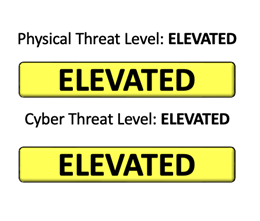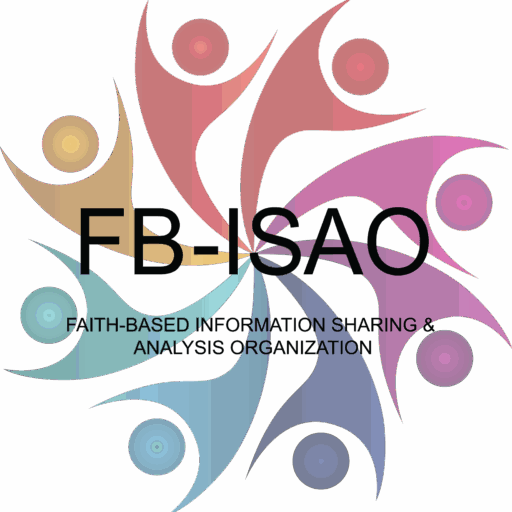Faith-Based Security Headlines
These updates are shared to help raise the situational awareness of Faith-Based organizations to best defend against and mitigate the impacts from all-hazards threats including physical security, cybersecurity, and natural disasters.
Church windows are weak point in security of Catholic parishes, experts say
The tragic shooting at Annunciation Catholic Church in Minneapolis, where a gunman fired through narrow stained-glass windows during an all-school Mass, has heightened awareness of the vulnerability posed by church windows, a vulnerability of concern to all HOWs and other facilities within faith-based communities. Security professionals have identifed windows as one of the weakest points of many parishes, urging church leaders to consider cost-effective upgrades such as break-resistant films. These security films can slow or even stop bullets from handguns, although high-velocity rifle rounds remain a serious threat. Experts further praise the preventative measure of locked church doors, noting that Annunciation Church’s practice of locking the doors once Mass began likely prevented even greater loss of life.
Analyst Comments: This incident shows how HOWs face persistent challenges in balancing openness and accessibility with physical security. The vulnerability of stained-glass and traditional church windows illustrates how architectural beauty can unintentionally become a security weakness. The Minneapolis tragedy also highlights the value of layered security, locked doors, situational awareness, and visible deterrents, reducing the potential of an attack. A proactive security posture that combines physical reinforcement, trained personnel, and clear emergency protocols is essential to mitigating risk while preserving the welcoming nature of worship spaces.
Public Funds for Church Security: Which States Are Stepping Up?
In the aftermath of the Assumption Catholic School shooting, many Catholic parishes across the country are urgently reassessing their security needs, including upgrades like surveillance, reinforced windows, and security personnel. The federal Nonprofit Security Grant Program (NSGP), administered by FEMA, offers approximately $275 million this year to nonprofits, including churches, for such enhancements. Yet, Catholic entities often hesitate to apply due to stringent terms such as compliance with federal administration laws like Title IX. Additionally, while state and federal funding opportunities exists to support both physical and cybersecurity improvement, the obligations tied to taxpayer grants and regulatory compliance continue to present challenges for many parishes.
Analyst Comments: This article highlights a critical tension for faith-based organizations: while public funding is available through programs like FEMA’s Nonprofit Security Grant Program the regulatory requirements attached create hesitation among some religious groups. This leads some HOWs under protected despite facing heightened risks of targeted violence. Strategic partnerships with local law enforcement is important for HOWs to implement as it helps bridge the gap with threat awareness and practical mitigation.
Joint Statement on Security Cooperation between the United States and Mexico
In a joint press event in Mexico City following talks with President Claudia Sheinbaum, Mexico and the United States reaffirmed their commitment to security cooperation, grounded in principles of reciprocity, respect for sovereignty, and territorial integrity, shared and differentiated responsibility and mutual trust. The two governments pledged to work closely to dismantle transnational organized crime, addressing challenges such as fentanyl and other illicit drug flows, arms trafficking, and irregular migration. To ensure accountability and active implementation, a high-level implementation group was established, designed to meet regularly and monitor progress on agreed actions, including countering cartels, securing borders, addressing illicit financial flows, and combating fuel theft. The partnership also includes strengthened intelligence sharing, increased prosecutions, and collaborative public health campaigns aimed at preventing substance abuse. Both sides emphasized that this cooperation would operate within each nation’s legal framework and on its own territory.
Analyst Comments: This joint statement shows a reset in U.S.-Mexico security ties, stressing sovereignty and cooperation while tackling cartels, fentanyl, arms trafficking, and migration. The new high-level implementation group signals a push for accountability, though Mexico’s sovereignty focus may limit U.S. involvement on the ground. Pairing law enforcement with public health approaches reflects recognition that the drug crisis needs more than enforcement. Success will depend on balancing hard security actions with softer community-based measures; failure risks repeating past shortcomings of earlier bilateral frameworks.
Get the Daily Awareness Post Delivered to your Email!
More Faith-Based Stories
Manassas church building hit by bullets from nearby shooting on Labor Day
Pennsylvania Catholic church robbed 4 times in 1 week
Heavily armed ‘Angel of Death’ from Alabama charged with threatening SoCal church & Alabama man calling himself the ‘Angel of Death’ charged after threatening a Catholic Orange County monastery
Antisemitic threats made against Vermont synagogues
“Kill the Jews!”: Man Armed with Pipe Chases Terrified Jewish Mother Pushing Stroller in Queens
(CA) Anti-Semitic Vandalism Hits Valley Storefronts
Man accused of vandalizing a church in Columbus
Darlington County church fire was intentionally set, pastor says
Man charged with false reports of bomb at Shady’s Corner & CAIR Welcomes Charges for Hoax Bomb Threat Falsely Blamed on Islamic Center in Chattanooga
Journey Fort Worth Pastor Diego Fuller denies sexually assaulting former parishioner after arrest
Tracker: 500 Attacks on U.S. Catholic Churches Since May 2020
Catholic churches attacked across Spain in August, including Sagrada Família
House panel approves cyber information sharing, grant legislation as expiration deadlines loom
Cybersecurity groups urge US Congress to renew state and local cyber grant program
Exclusive: FBI employees worry Trump’s Washington surge is exposing unmarked cars
US puts $10M bounty on three Russians accused of attacking critical infrastructure
‘Unrestrained’ Chinese Cyberattacks May Have Stolen Data From Almost Every American
Hurricane Kiko to impact Hawaii with wind, rain before mid-September
CSU’s 2025 Atlantic seasonal hurricane forecast was released on 3 September
Gulf on alert for hurricanes during 2nd half of September
Pros and Cons of a Public Disaster Risk Reinsurance Program for U.S. Residential Properties
Russia issues warning as European leaders, Zelenskyy gather in Paris before Trump call
Plan to avoid scams this National Preparedness Month
More Security-focused Content






